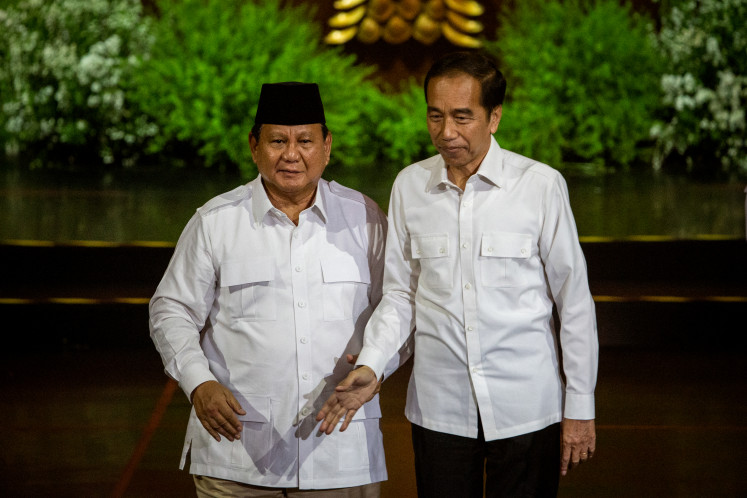Popular Reads
Top Results
Can't find what you're looking for?
View all search resultsPopular Reads
Top Results
Can't find what you're looking for?
View all search resultsThree remarks on the government budget
Finance Minister Sri Mulyani Indrawati is worried that there are parties trying to provoke the public by intentionally focusing on the nominal size of public debt and current budget deficit without looking at the context of Indonesia’s developmental needs and the budget as a whole.
Change text size
Gift Premium Articles
to Anyone
T
he ongoing discussion on the current state of the government budget is reaching ever higher levels of complexity in the public discourse. Rather than outlining crystal-clear arguments, interested parties tend to increasingly highlight political nuances and muddle the debate by comparing apples with oranges.
Finance Minister Sri Mulyani Indrawati is worried that there are parties trying to provoke the public by intentionally focusing on the nominal size of public debt and current budget deficit without looking at the context of Indonesia’s developmental needs and the budget as a whole.
The minister ensures that while the total government debt is now almost Rp 4 quadrillion (about US$280 billion at the current rate), management of the state’s finances has been handled with full caution to achieve citizens’ prosperity. According to Law No. 17/2003 on public finance, the debt to close the budget deficit may not exceed 60 percent of gross domestic product (GDP) at any given point in time. Currently, Indonesia’s public debt is just slightly above 30 percent of GDP — a small proportion compared to countries like Japan and the United States.
There are three reflections on the issues on government budgets, deficits and debts in layman terms.
First: a government budget is essentially equivalent to the household budget. While a family receives a salary from work, government income is collected from taxes. The family might spend the salary on things like rent, electricity, education and health care. Similarly, the government uses its income on public infrastructure projects, schools, hospitals, civil servants’ salaries and pensions.
If the family decides to build a house or buy a car, they may need to borrow money from the bank and pay it back over time. The government might also envision large investments in airports and railways; hence the Finance Ministry will have to borrow this money from international banks for later repayment.
With this in mind, whether a government prioritizes education over health or infrastructure over defense spending, the decision should be based on thorough considerations of short-, mediumand long-term benefits to the country. Thomas Dye, a professor of government at Florida State University, emphasized the nature of public policy as “everything that governments choose to do or not to do”.


















